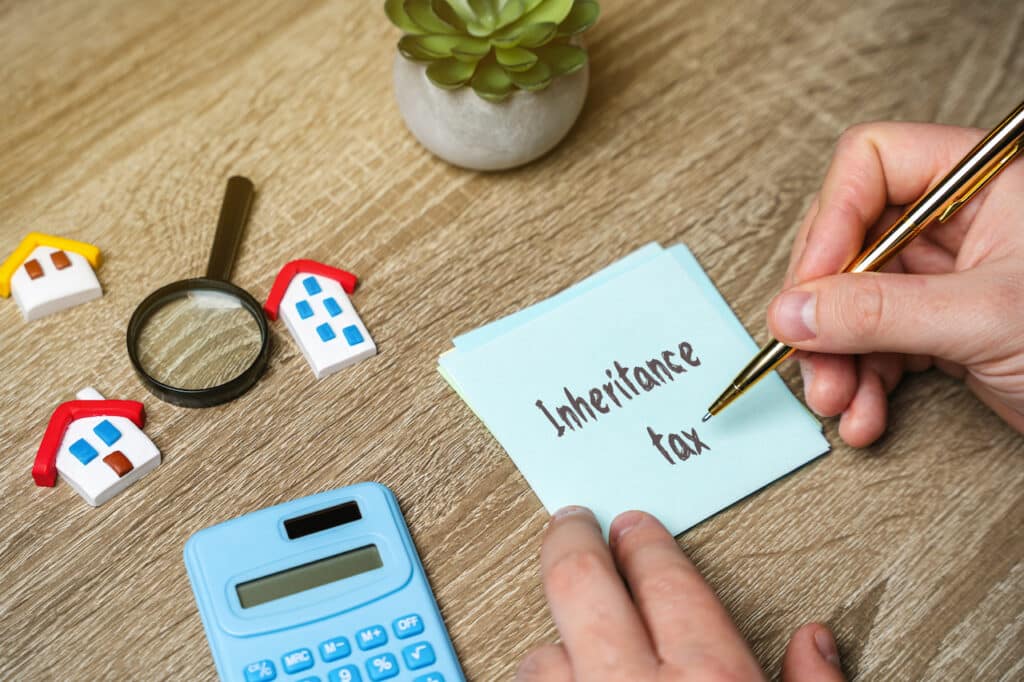Living abroad is great until rent, utilities, and “mystery building fees” start gnawing at your budget. The IRS does throw you a bone: if you live overseas long enough to qualify for the Foreign Earned Income Exclusion, you may also get a break on housing—employees can exclude eligible costs, self-employed folks can deduct them.
Think of it as: meet the time-abroad test, add up real housing expenses, subtract the IRS’s built-in base, and the remainder (up to city caps) can reduce the income you’re taxed on in 2025. We’ll keep it simple—who qualifies, what counts, and how to ballpark your savings.
📋 Key Updates for 2025
- The Foreign Earned Income Exclusion rises to $130,000, which also drives the housing calculation on Form 2555.
- The base housing amount is $20,800 for 2025 (16% of the FEIE, prorated by qualifying days).
- The general housing expense limit is 30% of the FEIE ($39,000), with updated higher caps for specified high-cost localities in Notice 2025-16.
What is the Foreign Housing Deduction?
Life abroad comes with sticker shock—rent, utilities, and “surprise, that fee again.” The foreign housing deduction (for the self-employed) and Foreign Housing Exclusion/FHE (for employees) help you shave those costs off your U.S. tax bill if you qualify under the Foreign Earned Income Exclusion rules.
- What it does: Reduces your taxable income for eligible housing you paid while living overseas.
- Who it’s for (eligibility): You must first qualify for the FEIE through bona fide residence or physical presence. Employees claim the exclusion; the self-employed claim the deduction.
- How to claim it: Report housing on Form 2555 and attach it to your U.S. tax return (Form 1040).
- How the math works: Add qualifying costs (rent, utilities, required insurance), subtract the IRS base housing amount, and the remainder—capped by your city’s limit—can be excluded/deducted.
- How it pairs with FEIE: Housing works alongside the Foreign Earned Income Exclusion to further cut your federal tax bill (it’s not a replacement).
💡 Pro Tip:
If your city has a high cap, housing can be worth more than the last slice of FEIE—run both numbers before filing. A quick compare (FEIE only vs. FEIE + housing) often finds hundreds or thousands you’d otherwise leave on the table.
Who qualifies for the Foreign Housing Deduction?
You only get a housing break if you’re the kind of expat the IRS already recognizes under the FEIE rules. That means a bona fide tax home abroad, plus proof you actually lived and worked outside the U.S. long enough to count. Once that’s true, employees use the housing exclusion and self-employed folks use the housing deduction—same idea, different label.
- You’re a U.S. citizen or resident alien with your tax home abroad for the period you’re claiming.
- You pass one eligibility test. The Physical Presence Test (≥ 330 full days in foreign countries in any 12-month window) or the Bona Fide Residence Test (resident of a foreign country for an entire tax year).
- You have foreign earned income to support the claim (wages, tips, self-employment income). Passive income—interest, dividends, pensions, rents—doesn’t qualify.
- You claim it the right way. Employees take the foreign housing exclusion; self-employed individuals take the foreign housing deduction—both on Form 2555 with your 1040.
- You net out any help from work. Employer-provided housing/allowances reduce what’s left for you to exclude or deduct; only out-of-pocket eligible costs can be claimed.
💡 Pro Tip:
Before you calculate anything, line up these three proofs for your claim period—days abroad, foreign earned income, and any employer housing paid. If those don’t add up cleanly, the deduction won’t either.
What expenses count as qualified housing expenses?
Think “normal costs to keep a roof over your head”—not buying the roof or gold-plating it. If you qualify for FEIE, you can count only reasonable, out-of-pocket housing you paid during your chosen 12-month period.
Counts toward housing:
- Rent for your main home abroad, plus attached residential parking
- Core utilities (electricity, water, gas, trash)—not phone or internet
- Renter’s/property insurance and required building/service charges
Doesn’t count:
- Mortgage payments (principal or interest) and capital improvements
- Furniture, décor, or anything “luxury” beyond ordinary living
- Phone, internet, streaming, and similar communications
A couple of guardrails to keep you honest: your claim can’t exceed your total foreign earned income for the period (wages or self-employment earnings), and it’s capped by the IRS limit for your city—why Singapore, Hong Kong, and London often see larger allowed amounts than smaller locales. Keep the expenses inside your 12-month FEIE window, and you’re in bounds.
💡 Pro Tip:
Sort bills into two folders—Counts (rent, core utilities, required charges, insurance) and Doesn’t Count (mortgage, phone/internet, upgrades). When it’s time to total, the Counts folder is your claim; the rest is just… life.
How much can you claim in 2025?
Here’s the 60-second version: total your eligible housing spend, knock off the IRS “base” slice, then keep only what fits under your location’s cap. Employees exclude it; the self-employed deduct it.
- Your floor (base amount): It’s 16% of the FEIE. For 2025 the FEIE is $130,000, so the annual base is $20,800 (prorate if your qualifying period isn’t a full year).
- Your ceiling (cap): Generally 30% of the FEIE → $39,000 for 2025, but many high-cost localities (e.g., Singapore, Hong Kong, London) have higher city-specific limits the IRS publishes each year. Use your city’s number if it’s higher.
- Your claim (the math): Qualified housing paid − base amount = housing amount, limited by the cap for your location; what survives is what you can exclude/deduct on Form 2555.
💡 Pro Tip:
Prorate everything by days in your qualifying window—and if you moved cities midyear, split the calculation by city. Two clean, prorated mini-calculations beat one messy, disallowed claim every time.
How to claim the Foreign Housing Deduction
Filing this is mostly a paperwork puzzle: get your dates right, total the right expenses, and let Form 2555 do the heavy lifting. Think calm, tidy, and chronological—you’re telling the IRS a short story with numbers.
- Confirm you qualify: Make sure your tax home is abroad and you meet either the Physical Presence Test or the Bona Fide Residence Test for your chosen 12-month period.
- Gather your numbers: Pull your foreign earned income for that period, your eligible housing costs (rent, core utilities excluding phone/internet, required building charges, renter’s insurance), and any employer-provided housing or allowances.
- Pick your 12-month window: Use the same window you rely on for the Foreign Earned Income Exclusion, and remember everything is prorated by days within that window.
- Complete Form 1040 and attach Form 2555: On Form 2555, enter your qualifying dates and number of days abroad, report your foreign earned income, and let the form calculate the maximum foreign earned income exclusion and your housing exclusion amount or deduction.
- Enter housing costs on Form 2555: List qualified expenses for the period. The form will subtract the base housing amount, apply your city’s cap, and produce the allowable housing figure.
- Factor in employer help: Report employer-provided housing or allowances; these reduce what you can exclude or deduct. Only out-of-pocket eligible costs remain claimable.
- Keep a tidy audit kit: Save leases, invoices, payment proofs, and a one-pager showing your day count and housing totals. If you changed cities midyear, keep a simple split for each location.
- Sanity-check the math: If you’re self-employed or juggling multiple moves, have a cross-border CPA, like Bright!Tax give it a quick pass. A five-minute review beats a five-letter IRS notice.
💡 Pro Tip:
Build a one-sheet calculator before you file: days in period, foreign earned income, eligible housing, employer housing, base housing amount, and your city cap. If the final housing number exceeds your foreign earned income for the period, trim it now—Form 2555 will cap you there anyway.
Foreign Housing Deduction vs. Foreign Tax Credit
Same goal—smaller U.S. bill—very different mechanics. One trims your income before tax is computed; the other erases U.S. tax after it’s computed. Know which lever you’re pulling.
- What they hit: Housing exclusion/deduction (Form 2555) lowers your gross income; the Foreign Tax Credit (Form 1116) reduces your U.S. tax liability dollar-for-dollar.
- Who qualifies: Housing requires FEIE eligibility (bona fide residence or 330-day test); the FTC applies when you paid foreign income tax on that income.
- What income: Housing only helps earned income (wages/fees); the FTC can apply to many income categories (salary, interest, dividends, rents, gains) if foreign tax was paid.
- Limits: Housing is capped by the base amount and your city’s housing cap; the FTC is capped by the limitation formula (you can’t credit more than the U.S. tax on that foreign-source income).
- Timing: Housing runs with the FEIE on a calendar-year claim tied to your qualifying period; the FTC allows carryback/forward of unused credits (1 year back, up to 10 forward).
- Interaction risk: Big housing/FEIE claims can shrink your foreign-source income, potentially stranding foreign taxes you can’t credit; the FTC doesn’t affect income, only the final bill.
- Forms: Housing lives on IRS Form 2555; the FTC lives on Form 1116 (by income basket). Neither reduces self-employment tax.
💡 Pro Tip:
Run two quick scenarios—(1) maximize FEIE + housing, then add FTC; (2) minimize exclusions to preserve FTC—pick the one with the lowest total U.S. + SE tax. The right order can be worth thousands.
Common mistakes to avoid
The housing break is generous—but easy to fumble if you rush the math or toss everything into the “housing” bucket. Slow down, follow the rules, and you won’t have to explain yourself to the IRS with sweaty palms.
- Treating non-eligible costs (mortgage payments, capital improvements, fancy furnishings, “luxury” extras) as qualified housing.
- Miscalculating the base amount or skipping it entirely—and forgetting to subtract employer-provided housing/allowances before you claim.
- Ignoring the location-based maximums the IRS publishes each year and claiming more than your city cap allows.
- Trying to file Form 2555 without receipts, leases, or proof of payment—then filing late on top of it.
- Mixing in costs outside your 12-month qualifying window or beyond your foreign earned income for that period.
- Forgetting that a good tax guide (or a five-minute CPA check) beats reverse-engineering your return after a notice arrives.
💡 Pro Tip:
Before you calculate, make a two-line checklist for each month—(1) eligible “roof” costs (rent, core utilities, required charges, insurance), (2) employer housing—then total the year. If line (2) isn’t subtracted from line (1) before the base and city cap, your claim’s wrong.
Making your rent work for you
When you qualify, the foreign housing exclusion/deduction turns rent, utilities, and those mysterious building fees into real savings—often thousands a year, and even more in high-cost cities like Hong Kong or Singapore. Do the math right (base amount, city cap, employer allowances), pair it smartly with FEIE and, where it helps, the Foreign Tax Credit, and your housing stops being a money pit and starts pulling its weight.
Want a clean, confident filing? Talk to Bright!Tax. Our expat CPAs will pin down your eligible costs, line them up with Form 2555, and squeeze every legal dollar out of your return—so your rent isn’t just a bill, it’s a tax break.
Frequently Asked Questions
-
Who can claim these tax benefits?
U.S. taxpayers who qualify for the Foreign Earned Income Exclusion (FEIE) under the physical presence or bona fide residence test can also claim housing relief—employees use the foreign housing exclusion; the self-employed use the foreign housing deduction.
-
What counts as foreign housing expenses?
Only reasonable expenses to keep a roof over your head abroad: rent, core utilities (not phone/internet), renter’s/property insurance, and required building/service charges. Mortgage payments, capital improvements, furniture, and “luxury” extras don’t qualify.
-
How do the deduction and exclusion actually reduce my tax?
They lower the foreign housing costs included in your income calculation. Employees exclude the allowed amount from income; the self-employed deduct it. Both reduce taxable income before the IRS computes your bill.
-
What’s the base amount and maximum amount?
The IRS subtracts a base amount first (a standard floor tied to FEIE). What’s left can be claimed up to your location’s maximum amount (city cap). High-cost cities get higher caps.
-
Do employer-provided amounts affect my claim?
Yes. Employer-provided amounts for housing reduce what you can claim. Only your out-of-pocket, eligible costs above the base—and within the city cap—count.
-
Can I claim phone or internet bills?
No. They aren’t reasonable expenses for this purpose. Keep them off the housing total.
-
How do I claim it on my tax filing?
File Form 1040 with Form 2555. Enter your qualifying days, foreign earned income, and foreign housing expenses; the form applies the base and the city cap to compute the allowed amount.
-
Does this work if I’m self-employed?
Yes—the mechanism is the foreign housing deduction (not the exclusion). Note it doesn’t reduce self-employment tax; plan accordingly.
-
What if I moved mid-year?
Split the year by city and prorate each segment. Apply the base and the maximum amount to each location separately, then combine.
-
Do I need receipts?
Absolutely. Leases, invoices, payment proof, and a simple worksheet of monthly totals will make your claim—and any future questions—painless.
-
Where can I get help?
If you want a quick, correct calculation (and to avoid rookie mistakes with caps and employer-provided amounts), Bright!Tax offers expat-focused tax services that handle the math and the forms so you keep the tax benefits you’re entitled to.

 Connect on LinkedIn
Connect on LinkedIn

